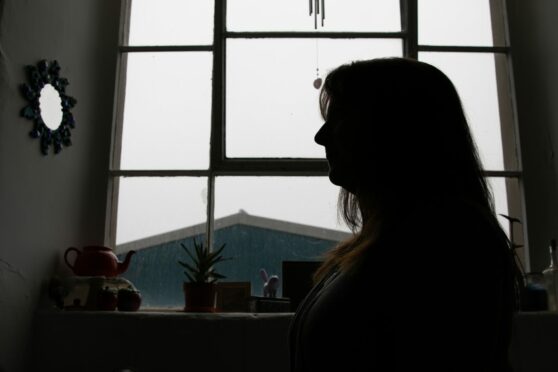More than 140 women across Scotland are set to have life-changing surgery within weeks after The Courier revealed how some faced “scandalous” years-long waits for treatment.
We reported previously how one Tayside patient was told her delay would extend to more than a decade because the only doctor able to carry out the procedure locally was signed off on long-term leave.
She is now set to have a fascial sling procedure, which treats female stress urinary incontinence, within a matter of days.

Jane, whose name was changed to protect her anonymity, is one of 142 women across the country who the government has promised will have surgery to treat their lower pelvic prolapse before the end of November.
It is understood 12 of those patients live in Tayside.
Ministers unaware of problem
Jane bravely laid bare how the condition left her feeling suicidal after dealing with incontinence, being unable to exercise or be intimate with her husband.
A second woman, who lives in Broughty Ferry, felt her quality of life was “of no consequence” after being left waiting five years for treatment.
The Courier has learned ministers were unaware of the scale of the problem until launching a special task force in the wake of our reporting.
Dundee-based MSP Michael Marra and his team led the fight for action at parliament after being contacted by Jane and a number of other local women.
He said: “We believe these huge delays have partly emerged as a result of a lack of capacity building in the wake of the withdrawal of mesh as a treatment option.
“But this is part of broader neglect and decline in women’s healthcare in Scotland.
“I see parallels to the collapse of breast cancer care in Dundee.
“There is systemic neglect of services for women.
“I just do not believe that this would happen in the same way and so often if we were discussing services for men.”
Why was treatment delayed?
Treatment for some of the women was initially delayed by a Scottish Government-commissioned review of transvaginal mesh procedures in 2015.
The surgery arranged for Jane is one of a number of non-mesh procedures introduced when treatment recommenced six years later.
That process was further held up by the Covid pandemic.
Women in Tayside were initially told they were going to be sent to the back of the queue so they could be referred to other health board areas.
But the government intervened after we revealed Jane’s ordeal.
Mr Marra said he hopes attention around the case will help to raise awareness that treatment is possible – and is now actually available.
He praised the courage of Jane and other women in coming forward.
Mr Marra said: “These are the most intimate details of a woman’s life.
“But Jane was clear that she wanted other women to be spared the pain, embarrassment and heartache that had ruined her life.
“Thanks to her, the life of every one of these 142 women will be changed for the better.
“That is an extraordinary thing and is testament to Jane’s bravery and her care for others.”
The Scottish Government said it has been “working intensively with NHS boards to help ensure that, through collaboration, treatment is offered urgently to those patients facing waits for a range of urogynaecology treatments.”


